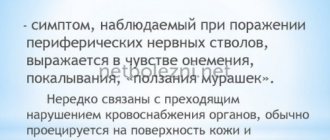Human behavior in society always implies compliance with generally accepted norms that regulate social relations in all spheres of human life: political, economic, social and spiritual. These social norms represent a certain set of rules of human behavior, non-compliance with which results in censure and condemnation. Society can apply various measures of public responsibility to violators of social norms, for example, in the form of censure from society.
What is delinquent behavior?
Delinquent behavior is a type of antisocial behavior in which a person regularly commits acts that cause harm to society and are considered offenses. In this case, the goal is often the illegal action itself, and not obtaining any benefit. The word "delinquent" comes from the Latin delinquens (criminal, delinquent).
Delinquent behavior is an important subject of study for sociology, pedagogy, psychology, criminology and other sciences. One of the most important goals is to promptly stop illegal actions without limiting the rights of individuals prone to such behavior. In particular, a big problem is the delinquent behavior of adolescents, for many of whom this period of life can become a turning point.
A characteristic feature of delinquent behavior is that it causes public outcry and condemnation. It is condemned in any society. At the same time, there are special legal institutions, the main task of which is to create conditions in which individuals prone to delinquent behavior would not commit offenses.
Delinquent and deviant behavior should not be confused. Both concepts imply that a person violates the norms and rules accepted in society. But deviant behavior is usually not associated with crimes and does not entail criminal or administrative punishment. In fact, delinquent behavior is always a type of deviant behavior, but not vice versa.
Portrait of a person with delinquent behavior, examples from literature
A person with this type of behavior can be either a man or a woman. His main difference from the others is his isolation, a certain gloominess is possible. It often happens that the criminal is outwardly beautiful, which endears him to people. He is smart, suspicious, and may have childhood traumas.
Often in classical literature you can find heroes with delinquency, which is reflected in their actions. Thus, in his work “Lady Macbeth of Mtsensk,” Leskov tells the story of Catherine, who kills her father-in-law, husband, nephew, and a girl attracted by her lover. She also commits suicide at the end. This is a clear example of actions that deviate from the norm. It’s no secret that Rodion Raskolnikov from the novel “Crime and Punishment” is another representative of delinquent behavior: he kills an old money-lender and steals jewelry from her.
Signs of delinquent behavior
Delinquent behavior is manifested in violations of the law, for which administrative or criminal liability is provided. It differs from ordinary criminal activity by the motives that force the criminal to commit illegal actions. To better understand what delinquent behavior is, it is advisable to remember the key signs of this phenomenon:
- Causing material or other damage. A characteristic feature of delinquent behavior is that actions are aimed specifically at causing harm. Such a person can break a window, throw an unextinguished cigarette butt into a trash can, or puncture a car tire. At the same time, he does not receive any benefit, but feels satisfaction from his action.
- Deliberate violation of the law. When committing a delinquent act, a person is usually well aware that his actions imply criminal or administrative liability.
- Antisocial nature of actions. Such actions often express a protest against existing norms and rules adopted in a given society.
- Demonstrativeness. As a rule, a person does not seek to hide his misdeeds, but commits them in such a way that they are seen by both those who will approve of them and those who will condemn them.
- The desire to attract attention. This is one of the main goals of delinquent behavior. A person wants to be discussed, even if it is discussed in a negative way.
A person exhibiting delinquent behavior does not necessarily have to be a sociopath. He may find it difficult to harm a specific person, so his actions usually harm public order, public or private property. If he damages someone’s property (for example, punctures a car tire), he usually justifies himself by allegedly punishing a person who has earned a lot of money through dishonest means.
Delinquent and deviant behavior
Delinquent and deviant behavior describe behavior that is contrary to the rules of society, and there are differences between them. Deviant behavior is relative, referring exclusively to the cultural norms of one group, and delinquent behavior is absolute in relation to state norms.
For example, robbery on the street is considered a form of income and according to the law, such an action is considered a crime, even if it had a noble meaning, and this does not indicate deviation. Deviant behavior is deviant; it characterizes actions that contradict the expectations, officially established rules, and those established in the social group in which the individual is located.
Delinquent behavior is behavior that is considered socially deviant; it refers to illegal acts that threaten the livelihoods and social well-being of individuals. Such unlawful acts are called torts, and the offender himself is called a delinquent. His behavior may be regulated through laws, disciplinary rules and social norms. Often such control provokes even greater opposition. Therefore, no matter how much society strives to punish a delinquent, he will always do what he wants to the last. His actions are explained by the presence of an internal conflict between personal desires and the aspirations and demands of society.
In delinquent behavior, the measure of what is permissible is the law; in deviant behavior, it is the standards and norms of society, and in order to achieve what they want, they can use all sorts of means. Such individuals in the future become criminals, or delinquents who constantly have problems with crime.
Types of delinquent behavior
Psychologists identify three main manifestations of delinquent behavior:
1. Disciplinary misconduct. A person deliberately violates labor discipline, causing damage to the organization for which he works. At the same time, he always comes up with excuses for himself, which are usually based on the fact that he is underpaid or is not provided with proper working conditions.
2. Administrative offenses. This type includes all kinds of violations of public order that imply administrative liability: hooliganism, noisy behavior in the dark, drinking alcohol and smoking in places where it is prohibited, obscene language, violating traffic rules, etc.
3. Criminal offenses. This category includes the acts listed in the Criminal Code. Crimes include offenses that cause serious damage to someone else's property, health or life.
In addition, addiction can be a sign of delinquent behavior. Although it is a deviation, it should be taken as an alarm bell. Addictive behavior includes alcoholism, drug addiction, gambling addiction, as well as sexual, food and other addictions. Habits themselves are not crimes, but they often provoke them.
Kinds
The main type of delinquent behavior is crime. Also its varieties are prostitution and drug addiction. The origins of sociological research on crime lie in the works of the Russian scientist German. The French-Belgian statistician Quetelet made a significant contribution to them. The latter came to the conclusion that any social system presupposes the presence of crimes. It is impossible to eradicate them completely, it is only possible to keep them under control. According to experts, the growth of crime in Russia was greatly influenced by the transition to market relations.
For a long time, drug addiction in the USSR was considered a problem only in capitalist countries. However, in modern Russia no one denies its importance. Sociological surveys show that the main reason for drug use is the thirst for new sensations. In most cases, we are talking about young people who got hooked on them under the influence of friends and acquaintances. Today society is much better informed about the consequences of drug use; the majority of respondents have a negative attitude towards them.
Another type of delinquent behavior is prostitution. It originated with the social division of labor and the development of monogamy. Even in the Middle Ages the church was forced to put up with this phenomenon. There are three main policies towards prostitution: prohibition (prohibitionism), registration and medical supervision (regulation) and prevention (abolitionism). The first two forms have proven to be ineffective. Historical experience says that only long-term socio-spiritual transformations can solve this problem in society.
Causes of delinquent behavior
From a psychological point of view, delinquent behavior rarely results from a single cause. Usually it is caused by a combination of several factors of different nature. Psychologists divide the causes of delinquent behavior into three groups: psychophysiological, family and social. Let's look at each group in more detail.
Psychophysiological factors:
- personality and character type;
- presence of dependencies;
- transitional age;
- mental disorders.
Family factors:
- parental divorce;
- dysfunctional family situation (quarrels, domestic violence);
- loss of a dear relative or loved one;
- alcoholism, drug addiction, gambling addiction and other bad habits of one of the family members;
- overprotection and excessive control on the part of parents.
Social (socio-economic) factors:
- lack of education and good job;
- lack of funds;
- problems of social and material inequality;
- national and ethnic contradictions;
- finding yourself in an unusual social environment.
Psychophysiological factors usually serve only as prerequisites, but it is family and social circumstances that provoke delinquent behavior.
Causes
As a rule, the formation of delinquent behavior occurs under the influence of not one factor, but a combination of them .
The preconditions that contribute to the emergence of problems appear in most cases already in childhood.
A child growing up in an unfavorable environment is more likely to exhibit antisocial behavior in the future than a child growing up in a supportive environment.
The main causes of problems:
- physical, psychological violence in the family,
- conflicts between parents,
- lack of attention to children from parents, ignoring their interests,
- lack of discipline in the family, or the presence of excessively strict discipline,
- adult abuse of alcohol, drugs,
- committing illegal acts by adults.
How does the Oedipus complex manifest itself in adult men? Find out about this from our article.
Differences from deviant behavior
To accurately understand what delinquent behavior is, it is important to be able to distinguish it from deviant behavior. First of all, there are three main differences to remember:
- Deviant behavior is directed against generally accepted rules. Delinquency is directed against law and order.
- Deviant behavior is determined by public opinion, morality and ethics. Delinquent behavior is defined by criminal and administrative law.
- Deviant behavior often involves conflict with specific people (parents, teachers). Delinquent behavior is directed against society and public order as a whole.
As noted above, delinquent behavior is a type of deviant behavior, but not vice versa. The main difference is whether the person seeks to cause harm to society and public order. Delinquent behavior usually involves a violation of criminal or administrative law. The actions committed in this case are called torts (from the Latin delictum - “misdemeanor”), and the criminal himself is called a delinquent.
Deviance and delinquency
It is necessary to immediately clarify that these two concepts are not absolutely equivalent. They relate to each other as a whole and as a part. All delinquent behavior is deviant, but not every deviation is a crime. It all depends on the laws that apply in the country. Deviant behavior becomes delinquent only under the influence of the state, represented by its special bodies that monitor the implementation of formal norms.
Delinquent behavior of adolescents
The tendency of adolescents to engage in this type of behavior is a big problem in modern society. Against the background of a general increase in the well-being of citizens and a decrease in the crime rate, the number of crimes committed by teenagers remains quite high. The important thing is that committing a crime at a young age, as a rule, determines the rest of a person’s life.
At the same time, teenagers have not yet developed moral and moral guidelines; they do not realize responsibility for their future life. Therefore, law enforcement agencies, teachers and psychologists must work together to ensure that juvenile crime is minimal.
The main features of delinquent behavior in adolescents:
- the main reason for delinquent behavior is the denial of the authority of adults and the fight against the rules they impose;
- offenses are most often committed by groups of teenagers, since they perceive them as a way of socialization;
- in adolescence, a person has the highest tendency to addiction;
- the psyche of adolescents is unstable, they are prone to taking risks and committing impulsive acts without considering the consequences;
- Teenagers do not have enough life experience and no understanding of responsibility.
Lack of experience, lack of moral and ethical principles develop in adolescents with their impulsiveness, desire to stand out and demonstrate their importance. Therefore, they themselves cannot always explain the reasons and motives for their actions. For example, while asserting himself through bullying and other offenses, a teenager himself does not understand why he is doing this. But at the same time, he feels more significant; it seems to him that in this way he strengthens his authority within the social group.
External and internal factors
In a more extensive analysis of the conditions that cause the formation of delinquent behavior, it is customary to distinguish two groups: internal and external.
External conditions:
- problems in the family , which are the main reasons for the formation of antisocial behavior in a person at an early age,
- underdevelopment of the system of public education of the individual : lack of an individual approach, lack of interest in each individual person on the part of the state,
- the averageness of the education system , which is not designed to take into account the characteristics of the emotional, psychological, and intellectual development of children.
Internal conditions:
- Physiological characteristics of the individual (mental development disorders, hearing defects, visual defects, physical characteristics, etc.). Often people with developmental disabilities or with pronounced defects in appearance experience great difficulties in socializing in society. Self-doubt, helplessness, dependence on others and frequent encounters with misunderstanding from society can give rise to aggression and a desire for antisocial behavior in a person. Society must pay special attention to people with special needs and prevent their isolation.
- Psychological problems (neuropsychic diseases, psychopathy, neurasthenia, etc.). These mental characteristics make people excitable and prone to committing illegal acts. Such people should be registered with medical institutions and be supervised, since during the period of exacerbation of their illnesses they are prone to committing serious crimes.
- Features of adolescence. Teenagers are more susceptible to delinquent behavior due to mental characteristics at this age. They often show increased aggressiveness, reluctance to follow the norms of society, and reluctance to give in to the requests of parents and teachers.
Teenagers often exhibit a need for risk, prestige, approval, a desire to impress and challenge society. Such desires often lead to the commission of illegal actions that are demonstrative in nature.Antisocial behavior can go away on its own over time as a result of natural age-related changes, or it can lead to the formation of an antisocial type of adult personality.
Prevention of delinquent behavior
As you know, people do not always become hardened criminals after their first offense. But almost always they become so after imprisonment. This statement is especially true for the post-Soviet space. Therefore, preventing delinquent behavior in children and adolescents is much more important than punishing those who have already committed crimes.
Basic measures to prevent delinquent behavior:
- prosperous family relationships, peaceful resolution of problems, absence of aggression and domestic violence;
- refusal to watch films, TV series and programs that romanticize criminal activity;
- improving the quality of education, increasing academic performance;
- the child must receive more positive emotions from parents and teachers in order to understand that they are not his enemies.
The problem of antisocial behavior
Delinquent (from the English delinquency - crime, offense) behavior is a special case of the broader concept of deviant (deviant) behavior, which has long been known in psychology and has been subjected to comprehensive study. The variety of reasons for the occurrence of this phenomenon and the consequences to which it led was the reason to single it out as a separate area of study. To better understand the mechanisms, the help of specialists in sociology, pedagogy, criminology and other related sciences was required.
The main sign of delinquency
In the process of development of society, a set of religious, moral, ethical and behavioral norms has been formed that regulate the comfortable coexistence of people in society. Some of them have received mandatory status in the form of laws, the observance of which is monitored by the state. And the other exists as a set of unwritten rules, the violation of which causes public censure. Deviation in this sense is any deviation from the norm , regardless of whether it falls under the definition of a crime or not.
The subject of deviant behavior is a person or society as a whole. The action in the Cathedral of Christ the Savior, organized by Pussy Riot, is a vivid example of this. The political speech “Virgin, Mother of God, drive Putin away” in the form of a dance at the Holy Throne offended the feelings of believers, violated work regulations and looked like blasphemy, but at the same time it fell under the article of hooliganism with a very big stretch, as prominent representatives of the Bar Association pointed out in an open letter published in the media.
However, in society, which received a formal spit in its direction, there was an opinion that punishment for such defiant behavior was necessary. The anti-government component of the action was emasculated, and it itself was turned into a hooligan prank aimed at creating cheap PR.
While remaining a deviation, speech turned into a tort (an act of a criminal nature). And such an offense is already subject to criminal prosecution, because delinquent behavior is always a violation of the legislation of the state in whose territory it occurs.
Dependence on external conditions
In psychology, this concept is viewed differently, and some scientists also include offenses that are not directly related to the crime. But they always violate written guidelines, be it the Criminal Code, the administrative code, the school charter or safety regulations. And because laws are subject to change, the same action may or may not be a tort. The 1960 Speculation and Currency Fraud Act defined these acts as manifestations of delinquent behavior, and after 1991, under the new economic conditions, they became the norm.
There is a direct dependence on the culture dominant in each particular state. Such a widespread sexual deviation as homosexuality is perceived far from unambiguously in history and in the modern world. In ancient Greece, these relationships were considered almost an obligatory norm for a citizen of Athens, a homey of Sparta, or at the court of the Macedonian kings. And today in a number of Muslim countries this can result in a death sentence, in others - in prison, despite the fact that in Europe and the USA the reaction fluctuates between a neutral position and the norm.
Examples of delinquent behavior are especially common in states where revolutions are taking place or global reforms are being implemented. The old norms of life have already been abolished, and the use of new ones has not yet taken root in the consciousness of the population, which automatically becomes the leading factor in the growth of criminal relations between people. As an illustration, it is enough to recall the rampant banditry in Russia in the nineties to appreciate the scope of possible deviations.
Types of torts
The main difference between antisocial manifestations is considered to be harm caused to oneself, another person, a group of people or society as a whole. The denial of social values and the consequences of this manifest themselves with varying degrees of aggressiveness . There are 4 types of delinquent behavior:
- Addictive, which is characterized by a departure from reality into the world of distorted concepts and addictions (alcoholism, drug addiction, sectarianism, gaming, sexual, computer addictions). In this case, mental and physical health and social ties with society are destroyed.
- Violations of discipline, which is expressed in non-compliance with the schedule, tardiness and absenteeism, appearing at work or school while drunk, and refusal to perform one’s duties.
- Administrative violations. Obscene language in public places, demonstrative drinking of alcoholic beverages, violation of traffic rules, etc.
- Crimes when the law is violated (theft, murder, rape, robbery, etc.) and for which criminal punishment is provided.
Their significance varies depending on age. If for adults these types are random or stable, then in adolescents there is a tendency to intensify delinquency.











